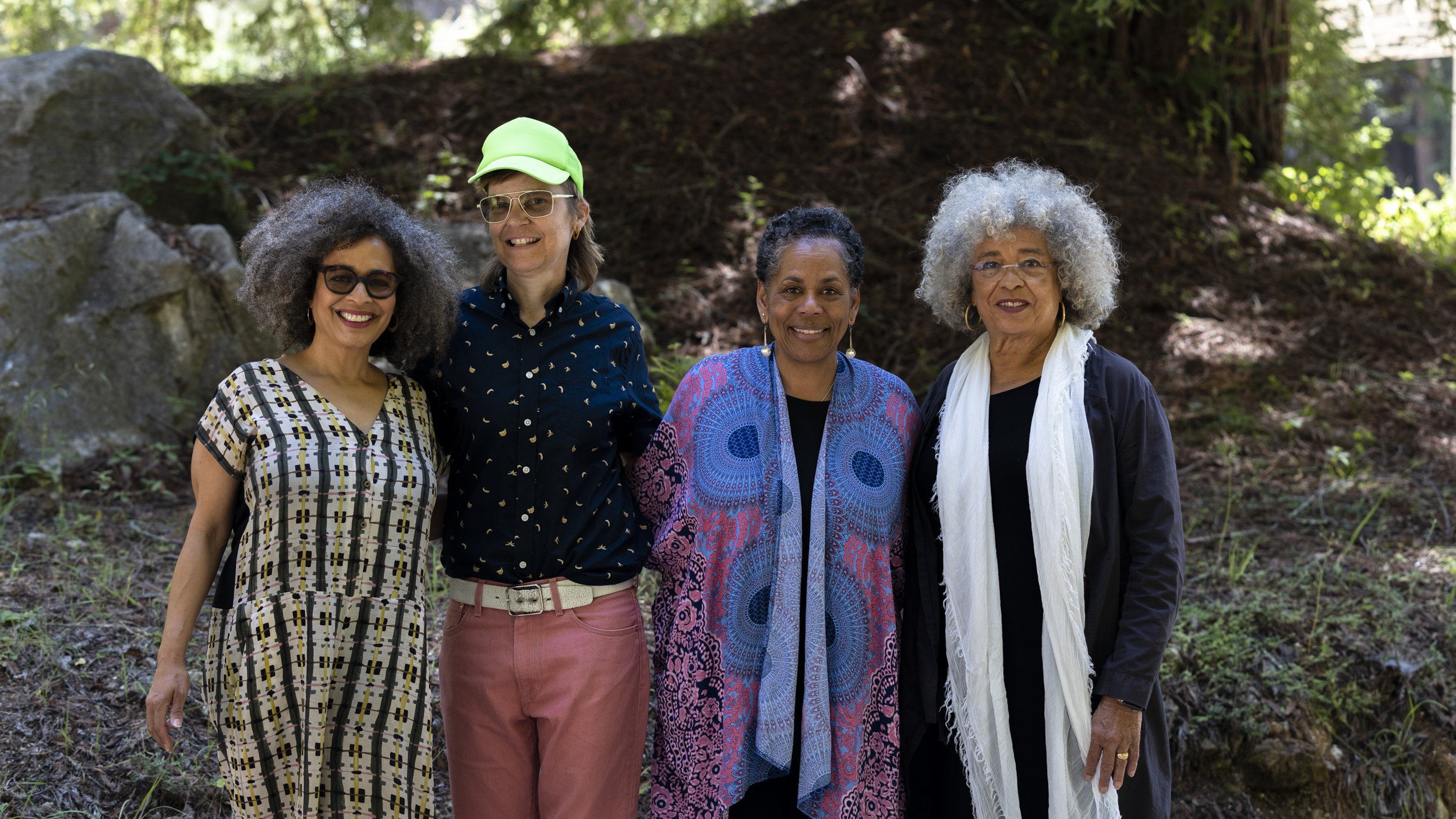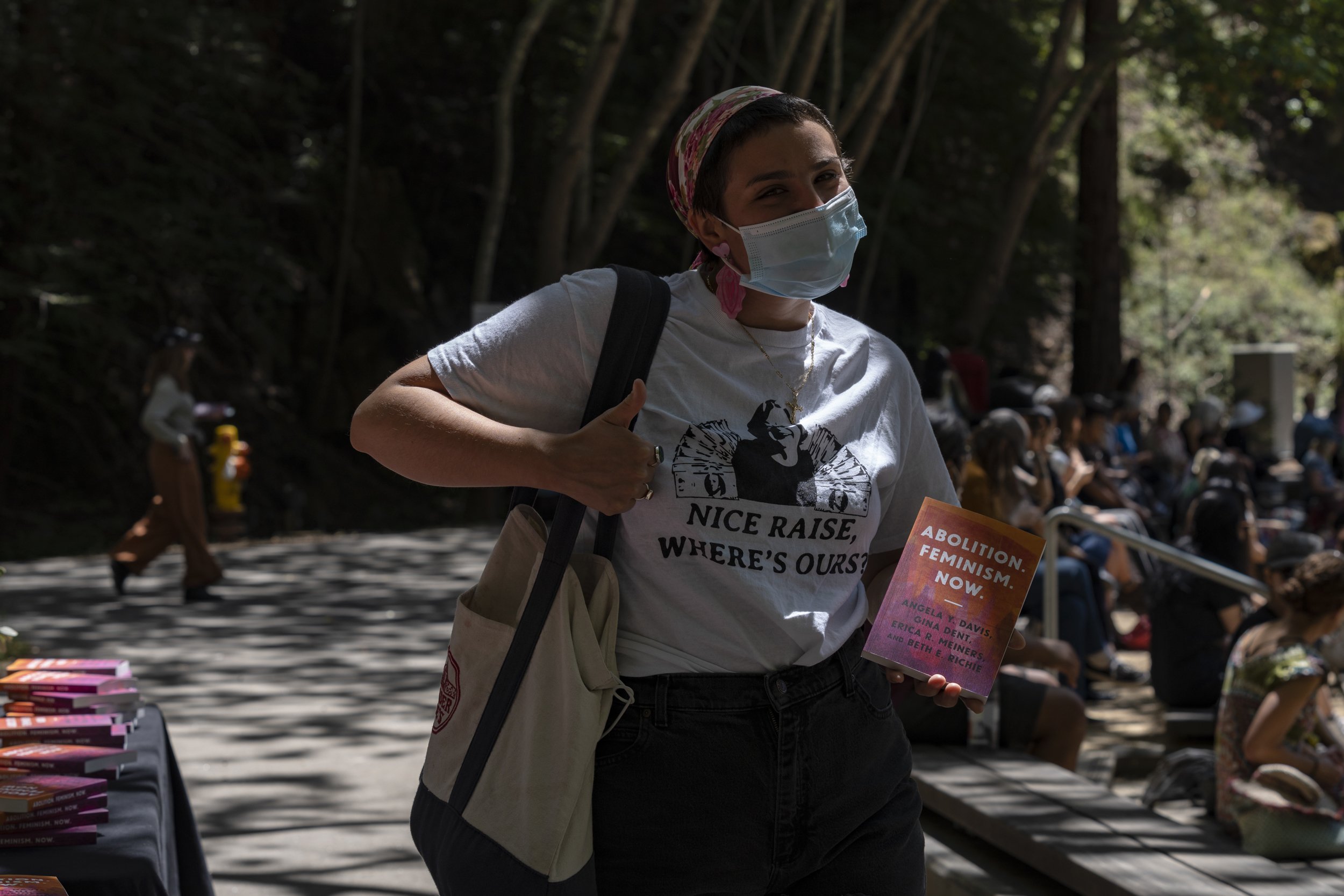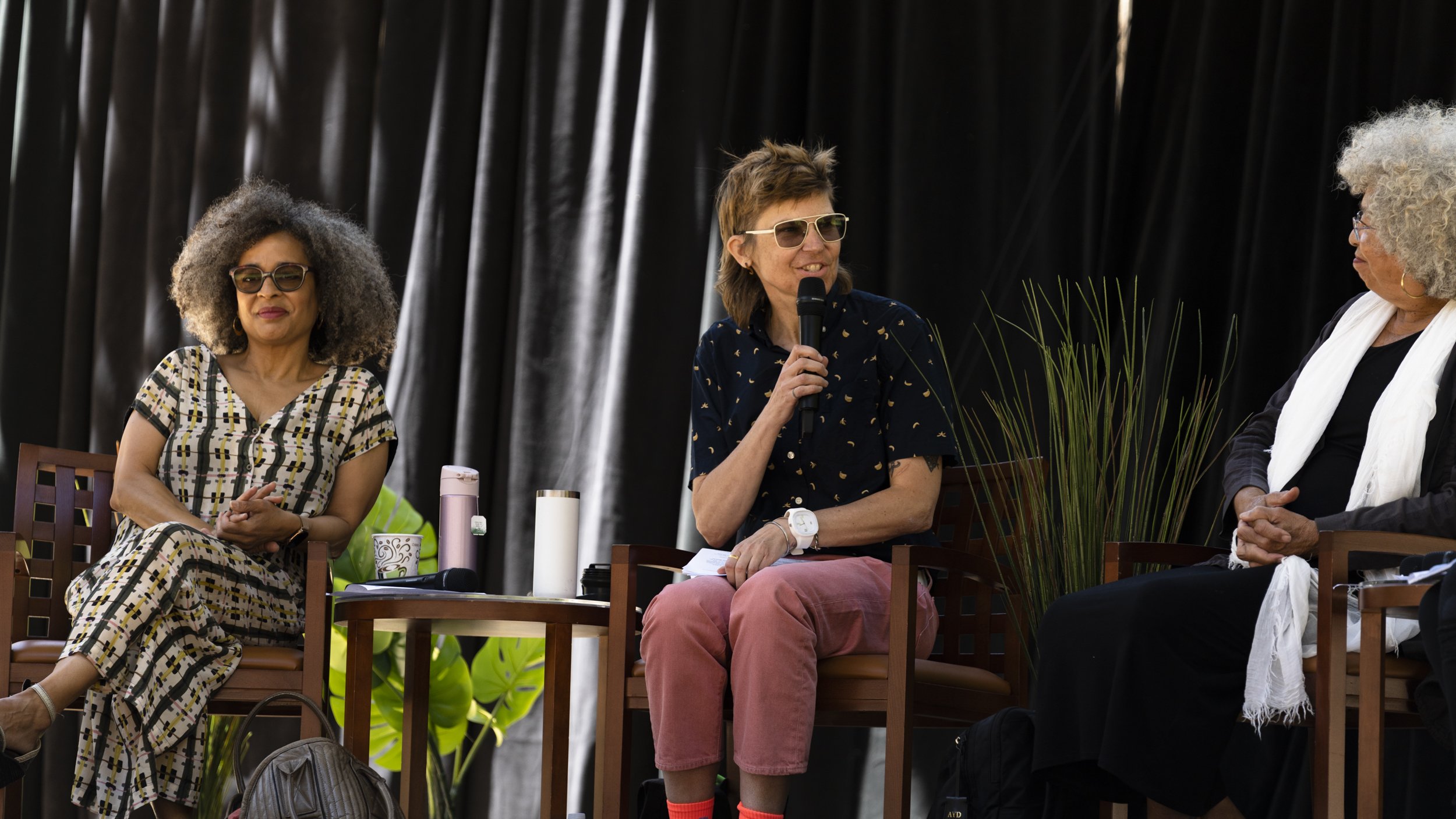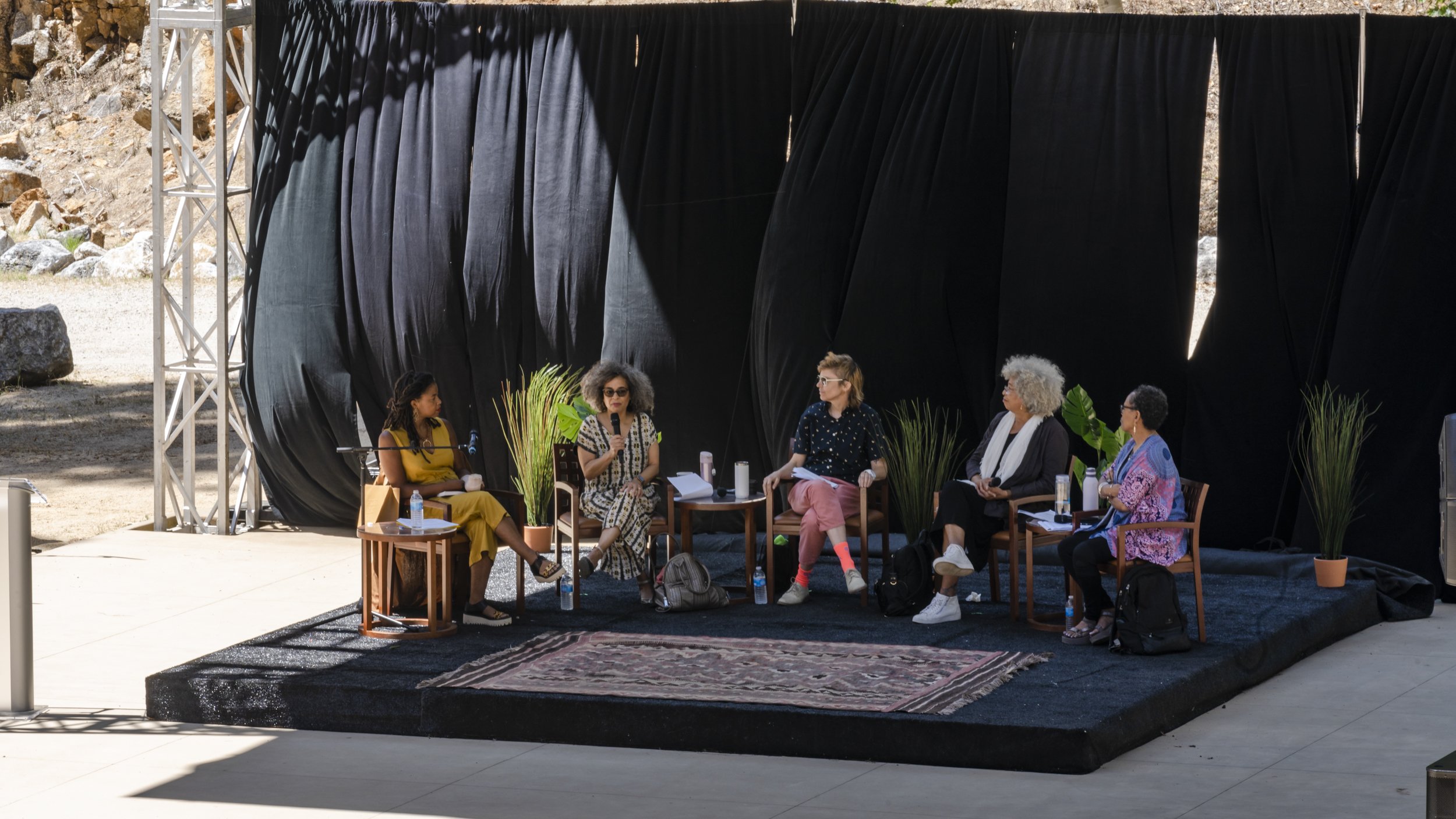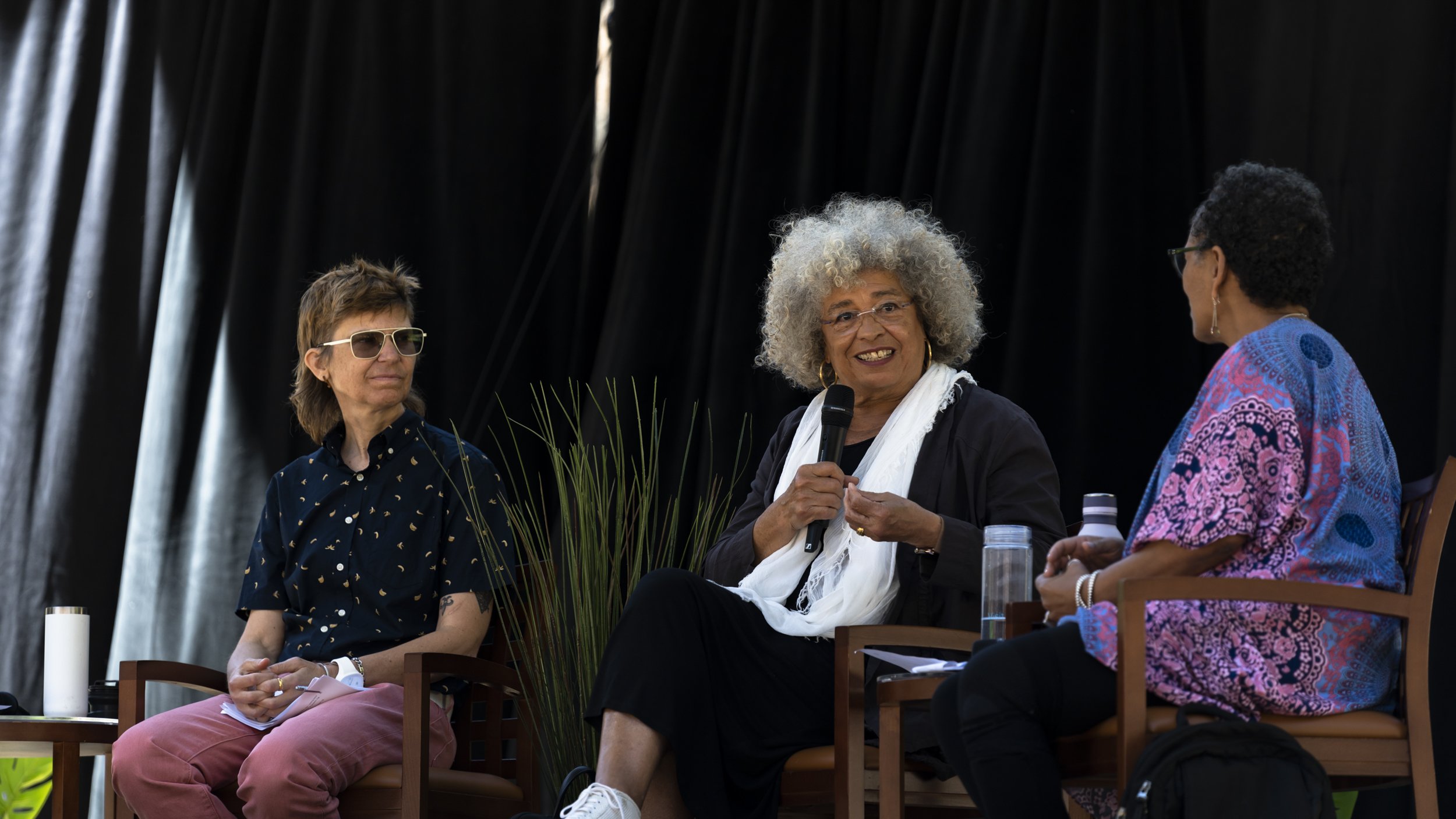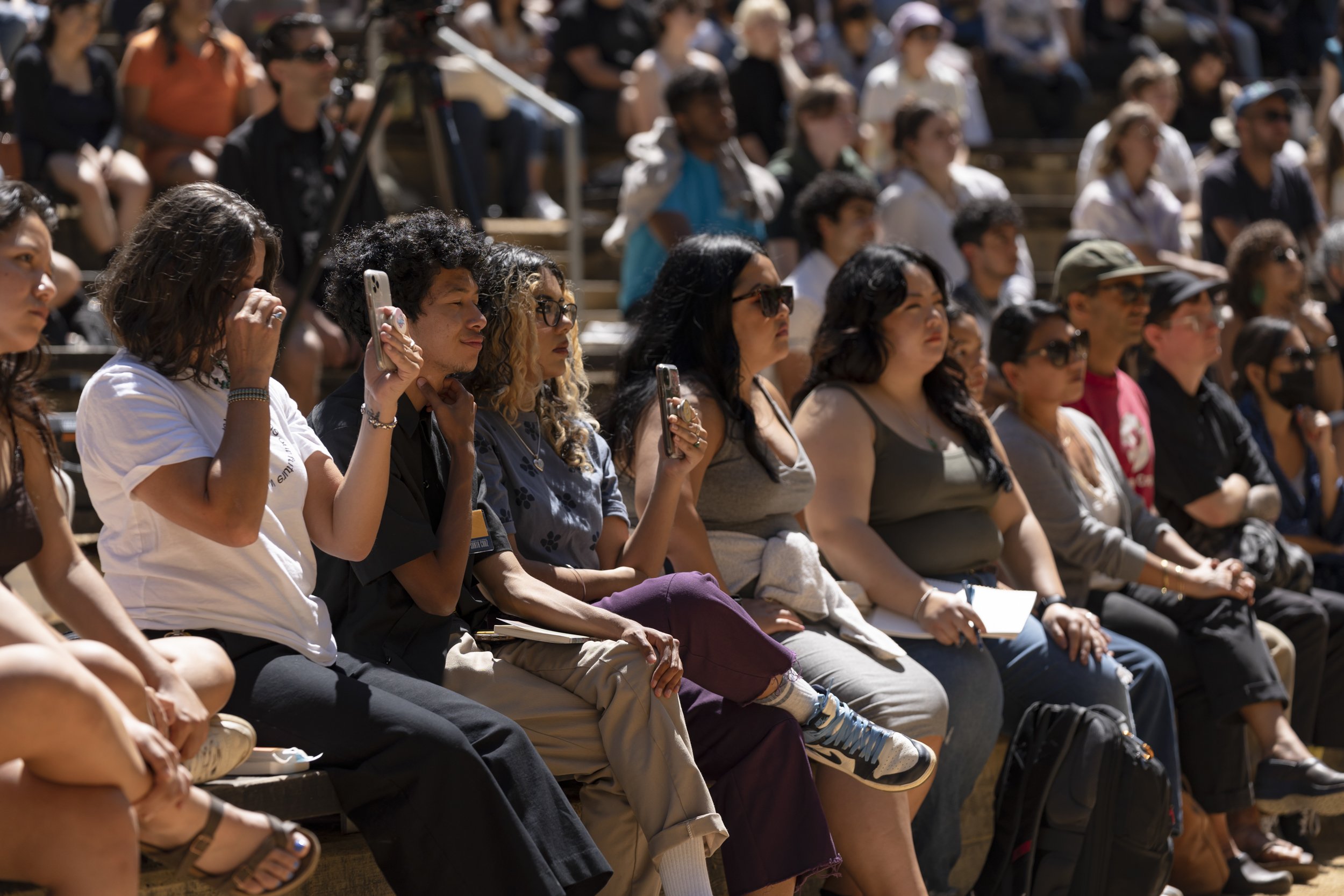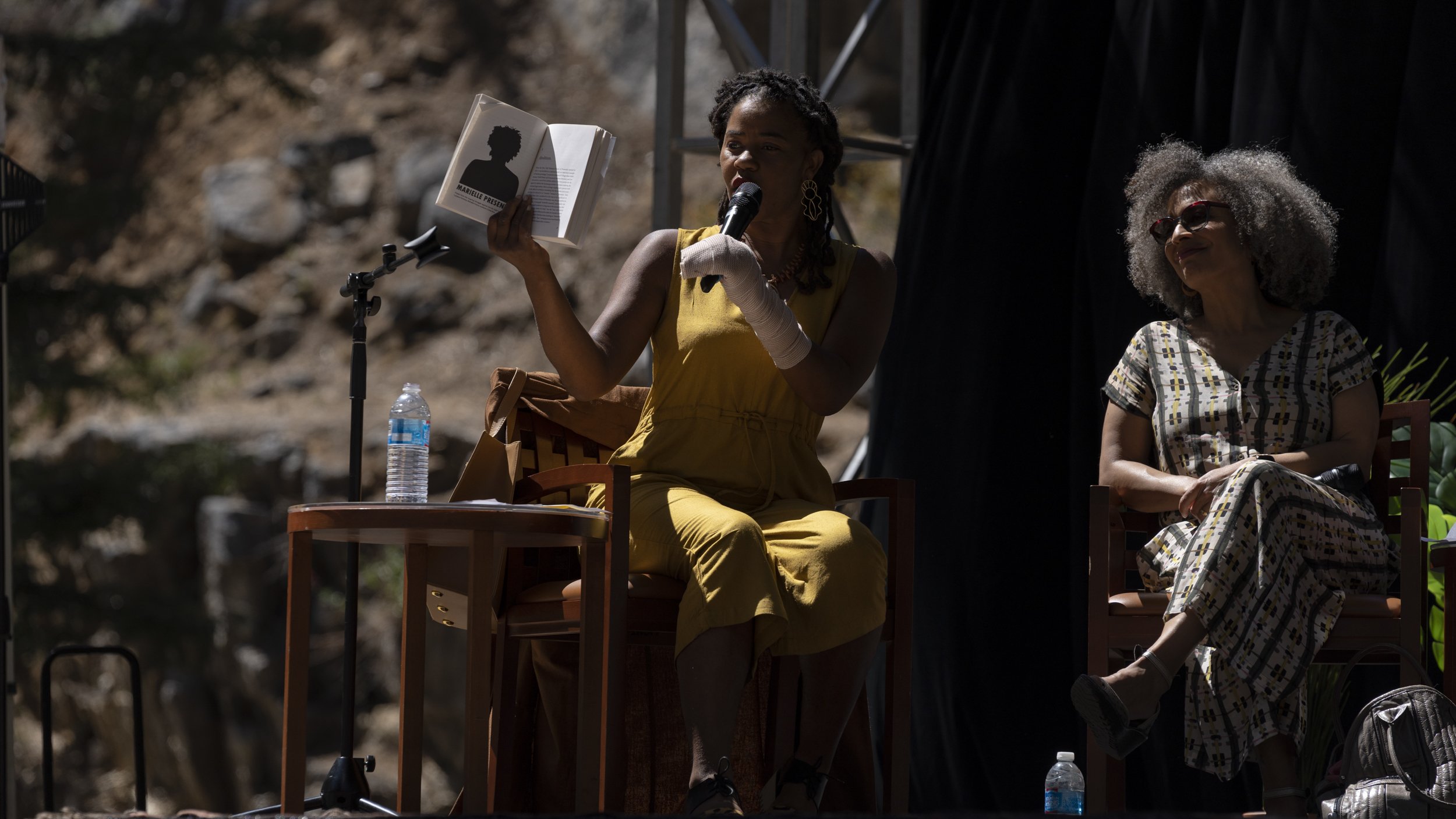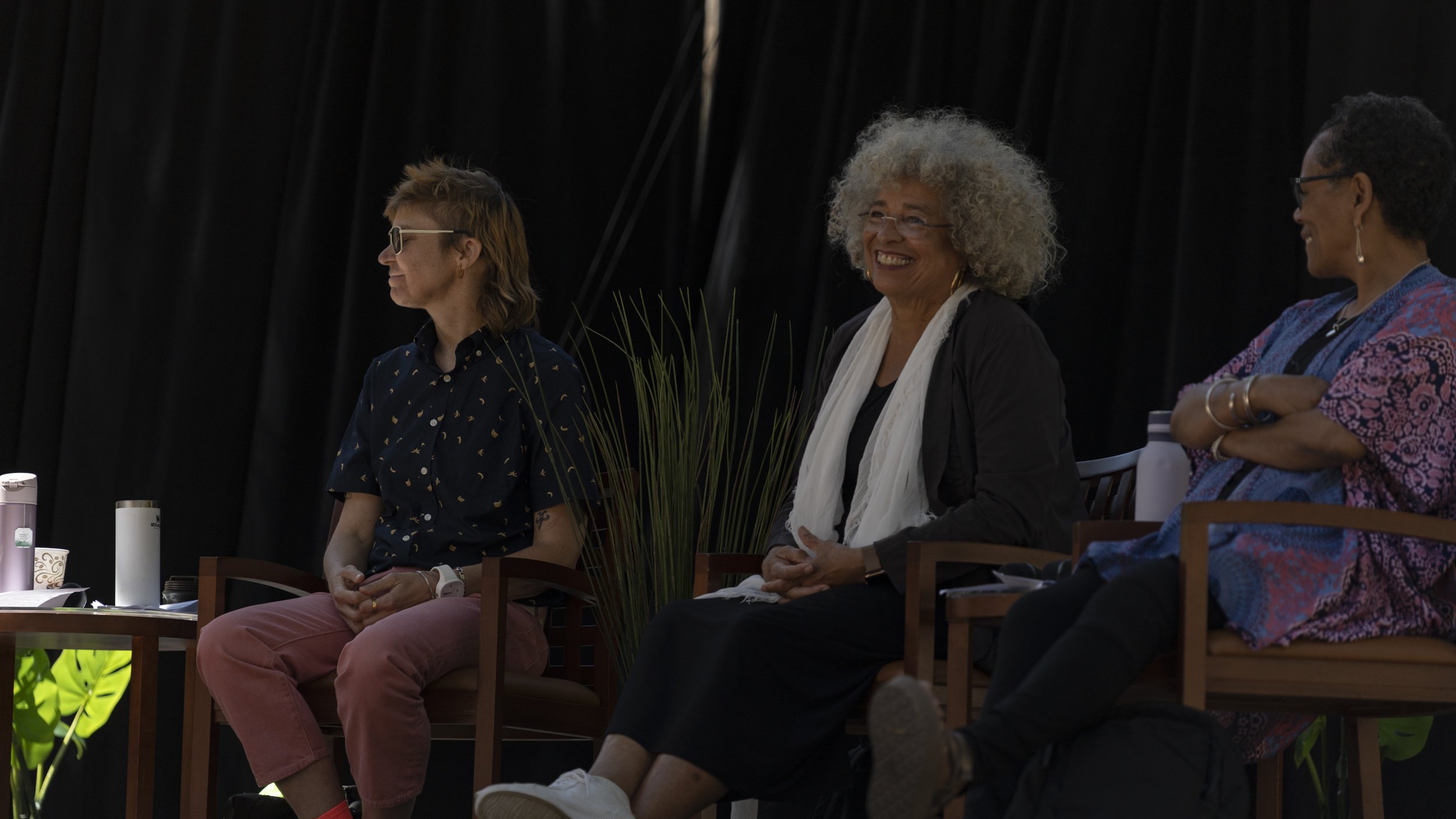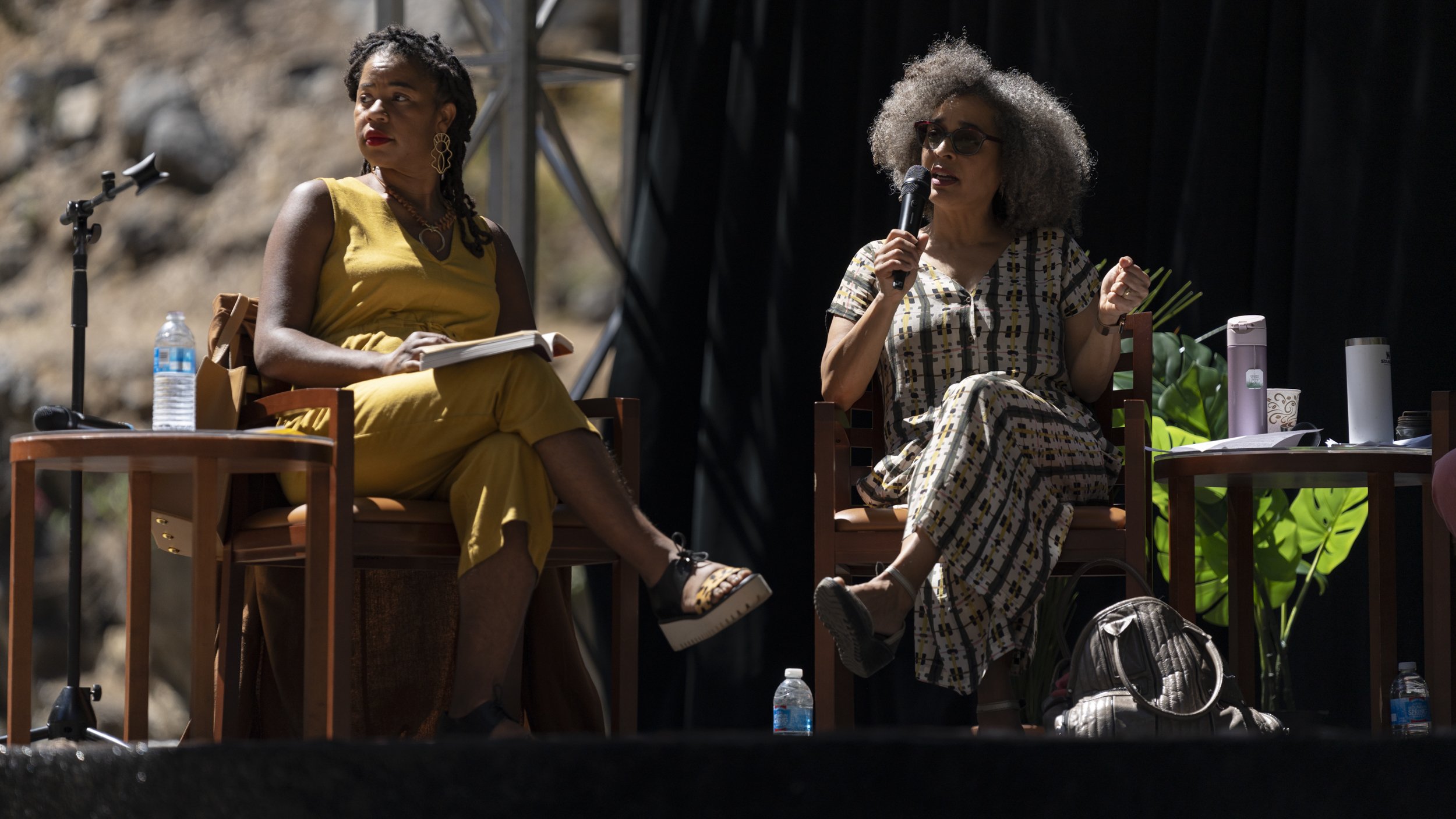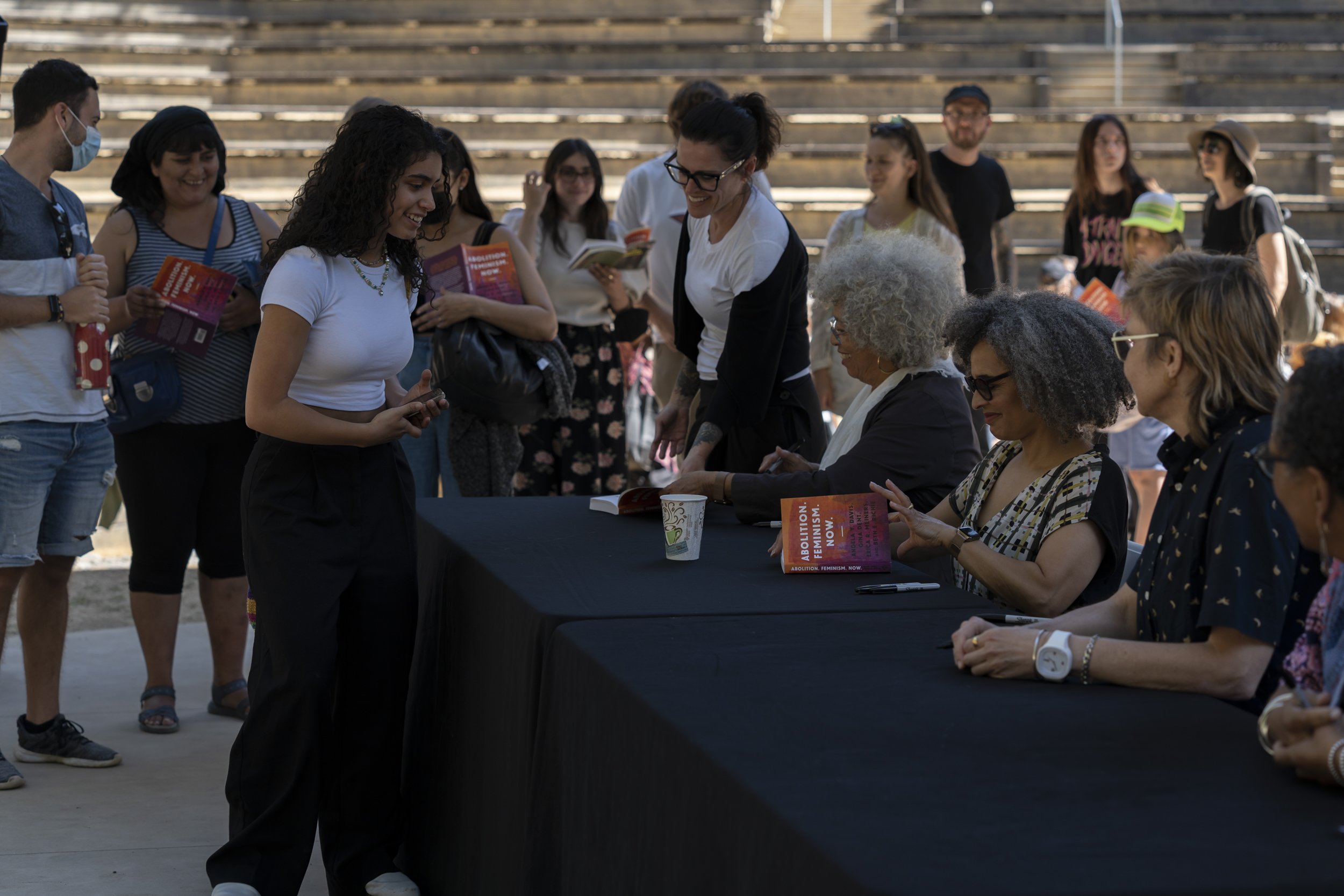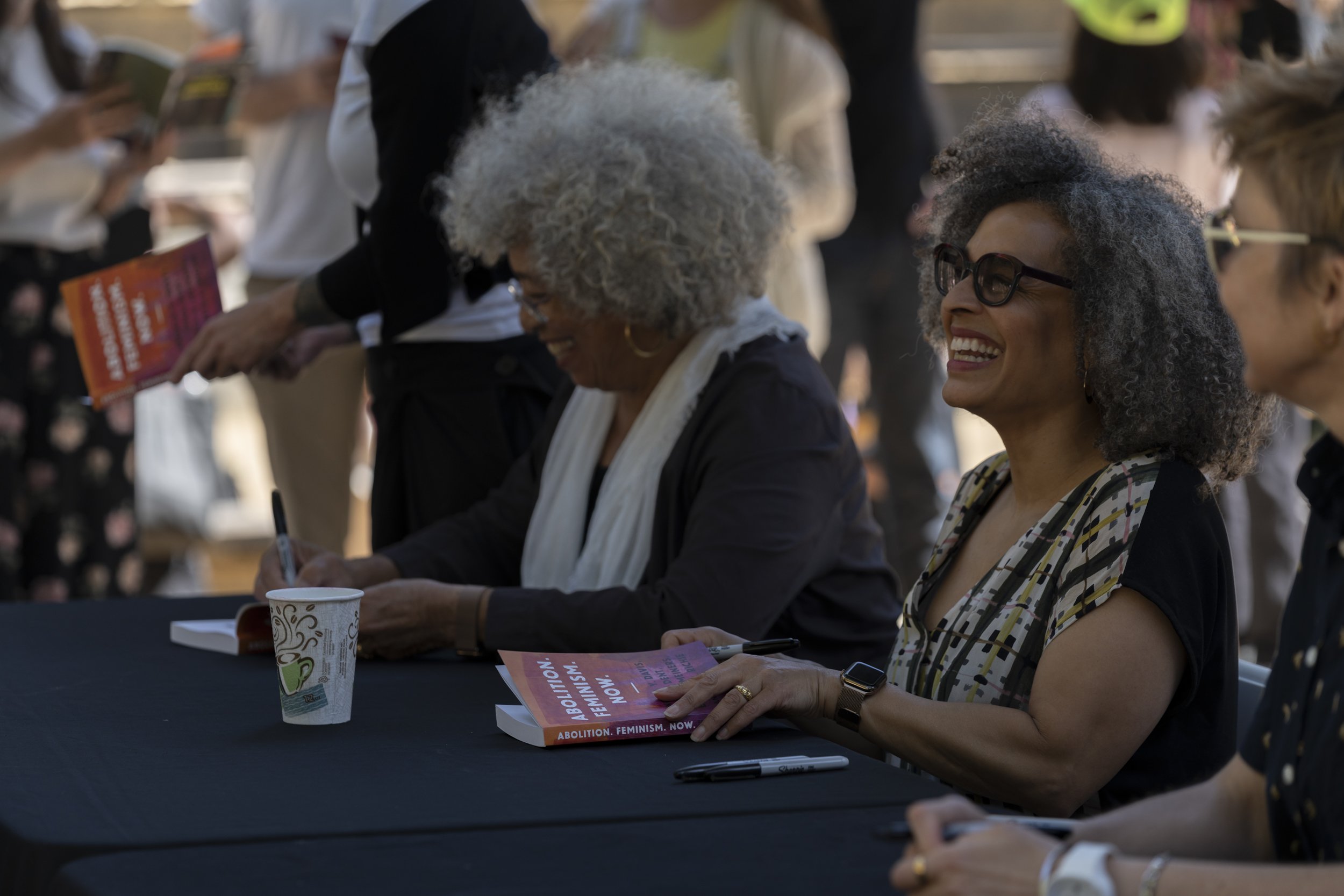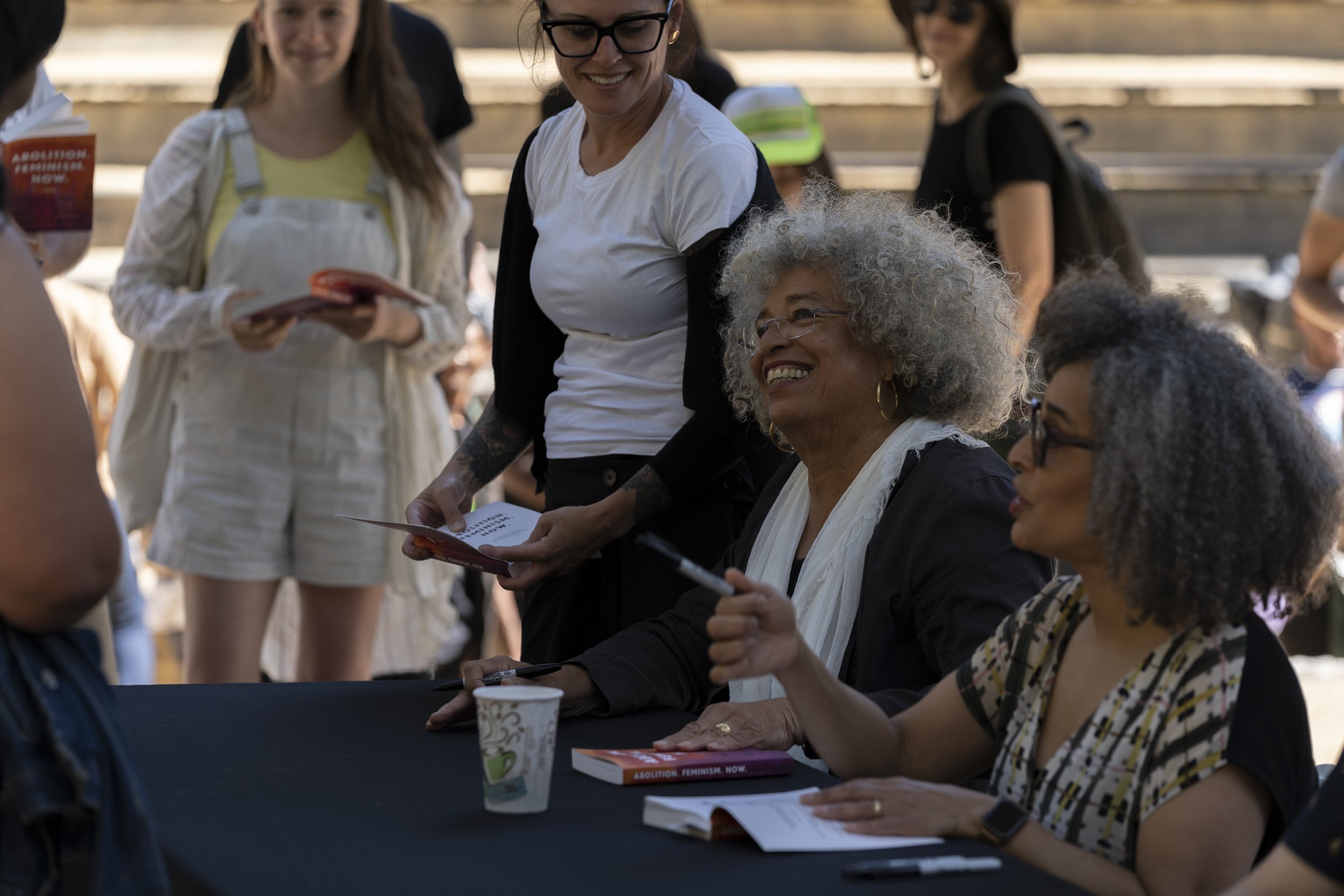ABOLITION. FEMINISM. NOW. W/ ANGELA DAVIS, GINA DENT, ERICA MEINERS, AND BETH RICHIE
Written by The Institute of the Arts and Sciences at UC Santa Cruz
As a politic and a practice, abolition increasingly shapes our political moment—halting the construction of new jails and propelling movements to divest from policing. Yet erased from this landscape are not only the central histories of feminist—usually queer, anti-capitalist, grassroots, and women of color—organizing that continue to cultivate abolition but a recognition of the stark reality: abolition is our best response to endemic forms of state and interpersonal gender and sexual violence. Amplifying the analysis and the theories of change generated from vibrant community based organizing, Abolition. Feminism. Now. surfaces necessary historical genealogies, key internationalist learnings, and everyday practices to grow our collective and flourishing present and futures.
About the Speakers:
Angela Y. Davis, Distinguished Professor Emerita of History of Consciousness and Feminist Studies, University of California, Santa Cruz, is a renowned activist and scholar. The author of numerous monographs, including most recently, Freedom is a Constant Struggle, 2015, for decades Davis has been for decades at the forefront of research and activism on prison abolition and the related intersections of race, gender, and class.
Gina Dent is Associate Professor of Feminist Studies, History of Consciousness, and Legal Studies at University of California, Santa Cruz. The editor of Black Popular Culture, and a prison abolition activist for more than 25 years, Dent is also the director of UC Santa Cruz’s groundbreaking public scholarship initiative, Visualizing Abolition, an art and education project aimed at shifting the social attachment to prisons.
Erica R. Meiners is Professor of Education and Women’s, Gender, and Sexuality Studies at Northeastern Illinois University and author most recently of For the Children? Protecting Innocence in a Carceral State, 2016. Meiners has collaboratively started and works alongside a range of ongoing mobilizations for liberation, particularly movements that involve access to free public education for all, including people during and after incarceration, and other queer abolitionist struggles.
Beth E. Richie is Director of the Institute for Research on Race and Public Policy, and Professor of Black studies and criminology, law, and justice at the University of Illinois at Chicago. Richie’s most recent publication, Arrested Justice: Black Women, Violence and America’s Prison Nation, 2012 demonstrates the emphasis of both her scholarly and activist work on how race/ethnicity and social position affect women’s experience of violence and incarceration, focusing on the experiences of African American battered women and sexual assault survivors.
